Many languages were spoken and heard by the Corps of Discovery. The Dictionary of Bias-Free Usage remonstrated that “only by a strange twist of white ethnocentrism can one be considered to ‘discover’ a continent inhabited by millions of people.” The journals are spiced with many clichés and colorful sayings of the time, and they did indeed encounter many Native American languages. Some now call it the ‘Corps of Diversity’ in a nod to present-day inclusiveness. Thus, language can be a fickle blur of motion when viewed from the future.
Pages Featuring the Art of Language
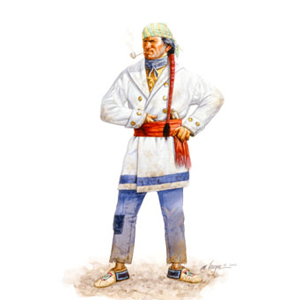

Whether they be boatmen, interpreters, traders, privates in the U.S. Army, diplomats, or cultural guides, the contribution of the French men already living in the Illinois and Louisiana region was “mission critical.”
The Indian Vocabularies
by Bob Saindon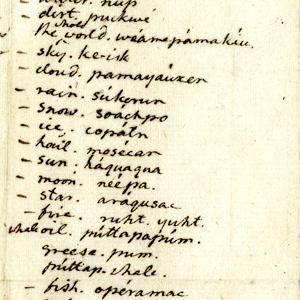

Due to the many unfortunate events which followed Lewis’s death, in 1809, the Indian vocabularies the captains had carefully collected are now lost, and were never made available to the public.
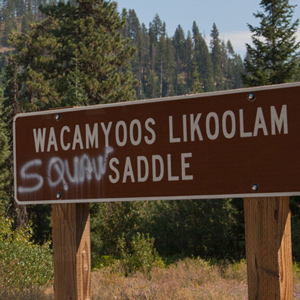

Both of the captains referred to Charbonneau’s young wife as a squaw, usually spelling it with a post-vocalic /r/—”Squar.” In the 1980s a nationwide movement arose to extirpate squaw from general use, because of its worst connotations.
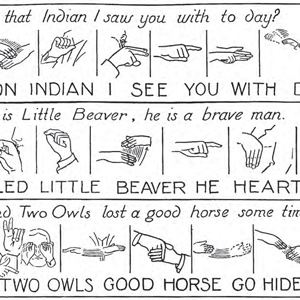

“our guide could not speake the language of these people but soon engaged them in conversation by signs or jesticulation, the common language of all the Aborigines of North America.” Lewis exaggerated the universality of sign language, which was mainly employed by tribes of the Great Plains.
The Dictionary of Bias-Free Usage remonstrated that “only by a strange twist of white ethnocentrism can one be considered to ‘discover’ a continent inhabited by millions of people.” Political correctitude might suggest that we simply drop the word discovery from our Lewis and Clark lexicon, and just speak of the captains as explorers.
The Interpreters
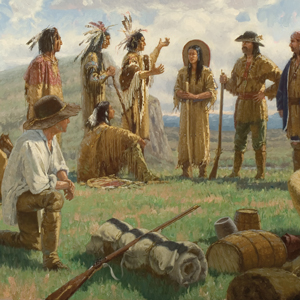

Several languages were needed to communicate with the many peoples between St. Louis and the Pacific. At times, long translation chains involving several interpreters were used.
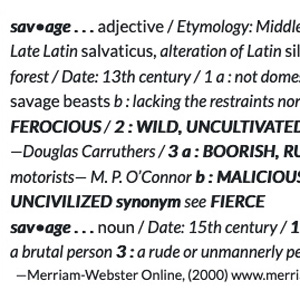

The word has two faces, one benign, the other brutish. The first springs from its etymological history, and represents the face of pure innocence. On the darker side, it is closer to the Latin cognate, saevus, meaning brutal, cruel, barbarous, violent and severe.
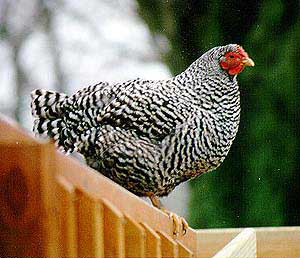

The spare vocabulary of the busy journalists was spiced here and there with the clichés and colorful sayings of the time. That vocabulary itself is another valued legacy of the 1804–1806 expedition.
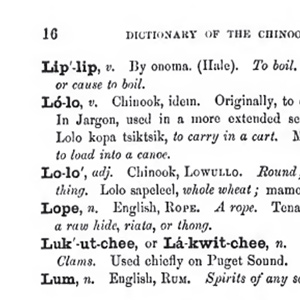

Lewis and Clark appear to have been unaware of the existence of Chinook Trade Jargon. Never-the-less, some of the words they encountered would be later documented as part of the jargon.
